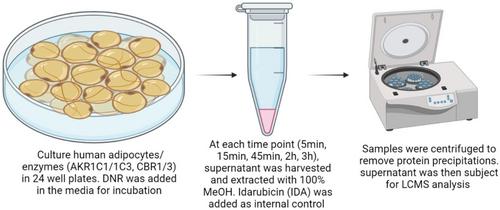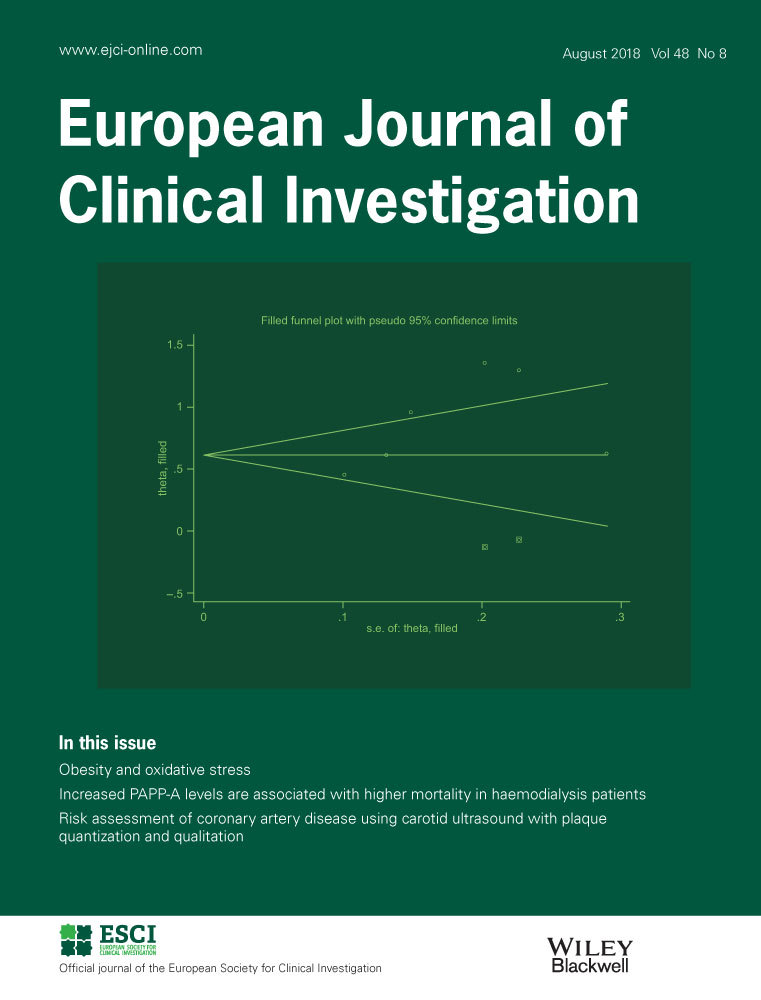Adipocyte maturation impacts daunorubicin disposition and metabolism
Abstract
Introduction
Acute lymphoblastic leukaemia (ALL) is the most common type of childhood leukaemia with effective chemotherapeutic treatment. However, obesity has been associated with higher ALL chemoresistance rates and lower event-free survival rates. The molecular mechanism of how obesity promotes chemotherapy resistance is not well delineated.
Objectives
This study evaluated the effect of adipocyte maturation on sequestration and metabolism of chemotherapeutic drug daunorubicin (DNR).
Methods
Using targeted LC-MS/MS multi-analyte assay, DNR sequestration and metabolism were studied in human preadipocyte and adipocyte cell lines, where expressions of DNR-metabolizing enzymes aldo-keto reductases (AKR) and carbonyl reductases (CBR) were also evaluated. In addition, to identify the most DNR-metabolizing AKR/CBR isoforms, recombinant human AKR and CBR enzymes were subject to DNR metabolism. The results were further validated by AKR-, CBR-specific inhibitors.
Results
This report shows that adipocyte maturation upregulates expressions of AKR and CBR enzymes (by 4- to 60- folds, p < .05), which is positively associated with enhanced sequestration and metabolism of DNR in adipocytes compared to preadipocytes (by ~30%, p < .05). In particular, adipocyte maturation upregulates AKR1C3 and CBR1, which are the predominate metabolic enzyme isoforms responsible for DNR biotransformation to its metabolites.
Conclusion
Fat is an expandable tissue that can sequester and detoxify DNR when stimulated by obesity, likely through the upregulation of DNR-metabolizing enzymes AKR1C3 and CBR1. Our data partially explains why obese ALL patients may be more likely to become chemoresistant towards DNR, and provides evidence for potential clinical investigation targeting obesity to reduce DNR chemoresistance.


 求助内容:
求助内容: 应助结果提醒方式:
应助结果提醒方式:


